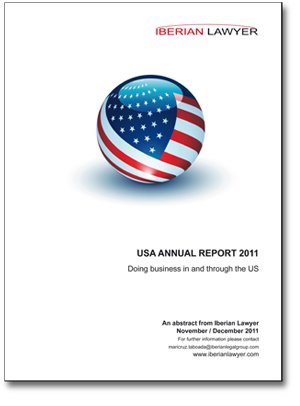The new financing options available over the horizon
Spanish businesses must look to new markets to target and attract new sources of finance, says Iñigo Gómez-Jordana, Managing Partner of Allen & Overy in Spain
Las empresas españolas deben mirar hacia nuevos mercados para atraer nuevas fuentes de financiación si quieren crecer, afirma Iñigo Gómez-Jordana, Socio Director de Allen & Overy en España. Gran parte de esta financiación está ahora fuera de Europa, por lo que lugares como Asia o Latinoamérica ofrecen grandes oportunidades para el desarrollo de las empresas.
The findings of our recent 50 Degrees East research series has underlined just how important obtaining new finance remains for businesses if they are to continue to grow, but also that much more of this money may be increasingly derived from outside of Europe.
The survey found that, globally, almost half of respondents (48 percent) expect their need for finance to rise, with the same percentage expecting the level to remain the same, just four percent of those asked expect their need for new finance to decrease. In terms of what options to follow, bank lending was the most popular (47 percent), followed by private investment (25 percent) and debt capital markets (21 percent).
It is not the demand that is the problem then, but the supply, and this is especially relevant in a Spanish context. Domestic companies are incredibly keen to obtain new funding but are struggling to do so because of a combination of tight lending conditions and low market confidence.
In line with our findings, bank lending remains the preferred choice for Spanish businesses but faced with their own ongoing challenges, the domestic banks are reluctant to offer new debt on realistic terms. Indeed, many private equity transactions are now being achieved without any bank debt whatsoever. Likewise, the debt capital markets are slow and only the biggest organisations have the resources to tap them and even then it remains very difficult to sell corporate bonds.
Spain’s equity capital markets are also sluggish and confidence has clearly been affected after the planned €7bn initial public offering of a 30 percent stake in the national lottery Sociedad Estatal Loterias & Apuestas del Estado was cancelled, over fears of a lack of investor interest. The privatisation of the national airport operator AENA has also taken considerably longer than expected to get off the ground.
Such a scenario has left many businesses – notably among the IBEX 35 – with the prospect of refinancing their existing debt as the most viable way of securing additional facilities. But much of that already held is reaching maturity and companies are also looking to reduce leverage or extend terms.
But such limitations are not faced by Spanish business alone. Finance restrictions are common across Europe and prompting more companies to look for new sources of funding.
The 50 Degrees East research found that, globally, 54 percent of business executives are now more likely to target Asia Pacific’s finance markets in the next five years. Indeed, three-quarters of respondents believe Asia Pacific’s economic influence is on the rise.
The Asia Pacific region is probably not however the exclusive option for Spanish companies but it will become more important in light of November’s general election. The new centre-right Government, led by Mariano Rajoy, plans to re-enforce regional relations and with China specifically. Chinese investors are increasingly active abroad, including within Europe, and have the funds available to undertake significant investments.
Even so, the international outlook for Spanish business will likely be focused towards both Asia and Latin America. China is growing in stature, but Latin America is a region where many businesses already maintain strong links. Brazil may now be seen as the region’s economic engine, but countries such as Argentina, Colombia and Peru are also showing strong growth and Spain is their logical European trading partner.
Mr Rajoy anyway has other domestic issues to focus on. The new Government is already drawing up plans to help cut the public deficit and increase Spain’s revenues but this strategy is unlikely to be finalised until early 2012. To compound matters, the eurozone crisis is also proving problematic. The question mark over the future of the euro, especially in light of the economic troubles in Greece and Italy, is prompting many potential investors to adopt a “wait and see” approach before deciding upon any substantial M&A activity.
The change of Government and the challenges facing the euro will not therefore immediately help to prise open new financing options for Spanish companies. Many must therefore follow the evident trend and look elsewhere to attract funds, with Asia and Latin America the most obvious targets.
Iñigo Gómez-Jordana is the Managing Partner of Allen & Overy in Spain. Based in Madrid, he specialises in securities and corporate finance issues.
Subscribe now to receive your copy of Iberian Lawyer












